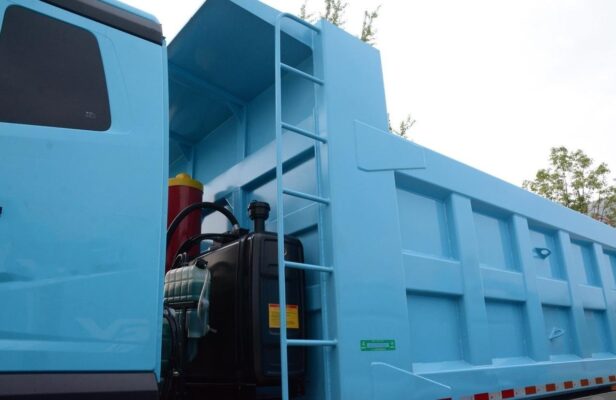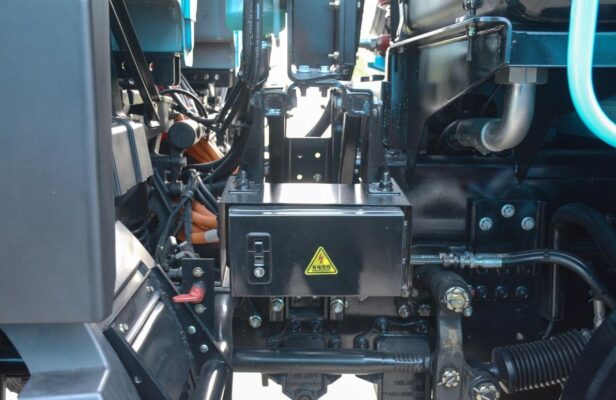For dump trucks functioning in the frigid northern regions, particularly those in mining operations, aside from insulating or heating the engine, the cab, the oil storage components of the transmission system, the hydraulic oil tank, and the fuel tank, etc., heating the compartment becomes equally essential. This is to prevent the goods from freezing onto the bottom and side plates of the compartment during the loading and transportation processes. Such freezing can hamper the unloading speed of the dump truck, reduce its actual loading capacity, and subsequently lower its transportation efficiency and economic benefits.

The heating of dump truck compartments is ingeniously accomplished by harnessing the waste gas emitted by the engine. Specifically, heating air ducts are ingeniously formed on the bottom and side plates of the compartment with the assistance of section beams. The bottom of the compartment is furnished with an air inlet, while the exhaust outlets are strategically located on the lower flange of the upper side beam of the side plate. This configuration ensures the unhindered flow of the heating gas and effectively guards against the intrusion of foreign objects into the heating air duct. The high-temperature waste gas expelled by the engine enters the bottom plate air duct and side plate air duct of the compartment via the air inlet at the bottom of the compartment for efficient heating. Subsequently, the waste gas is discharged through the exhaust holes on the lower flange of the upper side beam of the side plate.

A transfer valve is installed within the compartment waste gas heating system. When the ambient temperature is moderately high and heating of the compartment is unnecessary, it enables the prevention of the high-temperature waste gas emitted by the engine from entering the compartment heating air duct. Instead, the waste gas is directly expelled into the atmosphere through the original exhaust system of the engine.
This vehicle also capitalizes on the waste gas emitted by the engine to heat the hydraulic oil within the hydraulic oil tank of the hydraulic lifting system and the fuel within the fuel tank of the engine. This heating process is precisely controlled by the waste gas control valve.

Notably, the utilization of waste gas for heating not only optimizes the energy efficiency of the vehicle but also reduces the overall energy consumption. It showcases an eco-friendly and efficient approach in the operation of dump trucks, especially in challenging cold weather conditions. Ntxiv mus, the design and implementation of this heating system require precise engineering and quality components to ensure its reliability and durability. Regular maintenance and checks of the system are crucial to prevent any potential malfunctions and to guarantee the seamless operation of the dump truck, thereby enhancing its performance and longevity in the harsh northern climates.